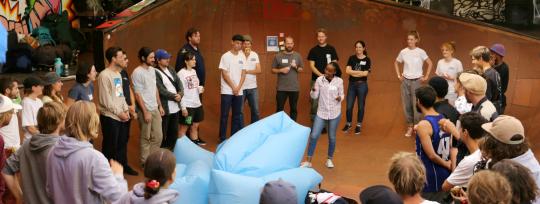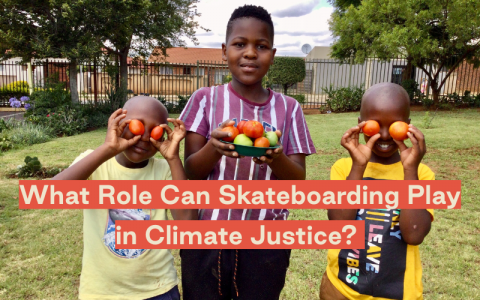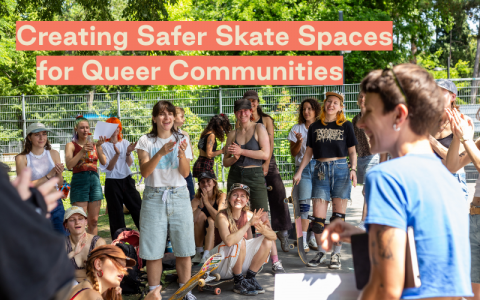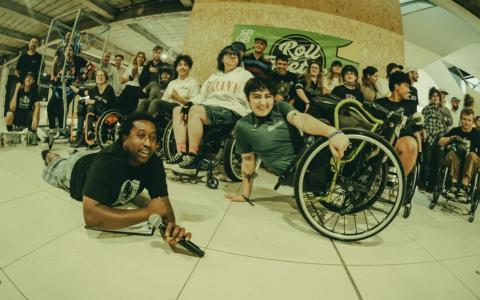By Rhianon Bader – Goodpush Program Manager
A couple weeks ago I was at Skateistan’s holiday party in Berlin, chatting with a guy who I’d met while working in Kabul, Afghanistan, back in 2012. He works in marketing with one of the largest humanitarian agencies globally, and is a big fan of Skateistan’s work, which he saw firsthand during visits to our Kabul Skate School back then.
He asked me to explain to him what the Goodpush Alliance does, and I talked about how we’re sharing what Skateistan has learned in the past 10+ years to support the growth of other social skateboarding projects worldwide – in areas like child protection, education, inclusion, and organizational development – so that we can make a bigger impact together.
He then said, “So, basically: you’re empowering your potential competitors?” and I said “Yes!”
Although I hadn’t really thought about Goodpush in the way that he put it, I explained how Skateistan’s team realized a couple years ago that our organization can only reach so many children on its own, and that to really make a difference on a large scale, the best way would be to support and connect the 150+ skateboarding-based social projects that have popped up globally in the last decade.
The humanitarian marketing guy went on to say that what Goodpush is doing seems to be based on the open source philosophy originally developed for software, and that the way Goodpush is “open sourcing” our knowledge for free is super innovative – something he believes more non-profit and aid organizations should be doing, rather than competing with each other.
In fact, the open source movement was very much an inspiration for Skateistan’s decision to build a peer-learning network – providing toolkits, events, and an online hub dedicated to the small but fast-growing social skateboarding sector.
The other inspiration was the many, many requests for advice and technical support over the years that Skateistan received from people all over the world who wanted to start something similar. We realized we didn’t have the resources to be directly involved in all these countries and projects, but we DID have a way to make their work a little bit easier. And even better: they could run things in their own way to fit the very different contexts they are working in.
But let’s be clear: Skateistan didn’t go into this idea of opening up our model without considering the risks involved with sharing our “secret sauce” and potentially creating more competition as a result. We launched the Goodpush Alliance in early 2018 with our eyes open, not knowing how it would work out, but believing very strongly that, at the end of the day, it could only be a good thing if more skateboarding-based projects around the world were able to successfully grow as a result of our resources and support.
I'm pretty proud to be a part of an organization like Skateistan that understands the philosophy so eloquently put by the Nobel-prize winning author Toni Morrison:
"If you have some power, then your job is to empower somebody else."
It’s an old way of thinking, to hold onto knowledge and information. By sharing what we’ve learned (usually the hard way!), smaller skateboarding initiatives can grow quicker and smarter, wasting less time on problem-solving and creating curriculum or policies from scratch.
But one of the best parts about promoting a culture of sharing, which we didn’t expect, was that so many of the projects in the Goodpush Alliance would be so motivated and excited to share their own models, successes and learnings. The peer-to-peer learning that we at Skateistan have gained in the process has pushed us to never be complacent, and to continuously find new ways to improve the work that we do.
As more and more skateboarding-based projects become increasingly sustainable, inclusive and impactful, it benefits us all and legitimizes skateboarding as a tool for social change. And by being able to connect and learn from each other, we can achieve way more with our limited resources than going it alone. We can see where our aims are aligned, and make best use of each of our strengths toward a common goal, even if how we get there may look very different.
Going into 2020, if we want a world where everyone benefits more equitably, our best bet is increased openness. This will help us to move faster, be more united, and innovate more quickly in response to the challenges we seek to address. There are unlimited possibilities when we stop thinking of others as potential competitors, and think of them instead as potential collaborators.



